The gut microbiome consists of the entire gastrointestinal tract and the healthful bacteria that reside within those organs. Our body consists of trillions of bacteria that reside in various parts of organs and even on the skin. However, these bacteria do not pose any threat or harm to your intestines or digestion or your overall health. Instead, they act as an active participant in our immune health, digestion process, normal bowel movement, and in retaining healthy gut and brain health. Thus, the gut microbiome refers to the overall gut environment and the live gut bacteria are most commonly referred to as gut flora. Probiotics are similar live microorganisms that promote health and wellness, and prebiotics is the non-digestible fiber that nourishes the probiotics or the gut microbiota, to learn more about Probiotics and Prebiotics and the difference between them, visit this page! Probiotics are beneficial bacteria that support digestive health. The live cultures are found commonly in fermented foods such as yogurt or kefir, but they can also be added to food through supplements or capsules.
Let’s elaborate on the composition of gut microbiota, the role of probiotics or these microbes, and why these live gut bacteria are called beneficial bacteria.
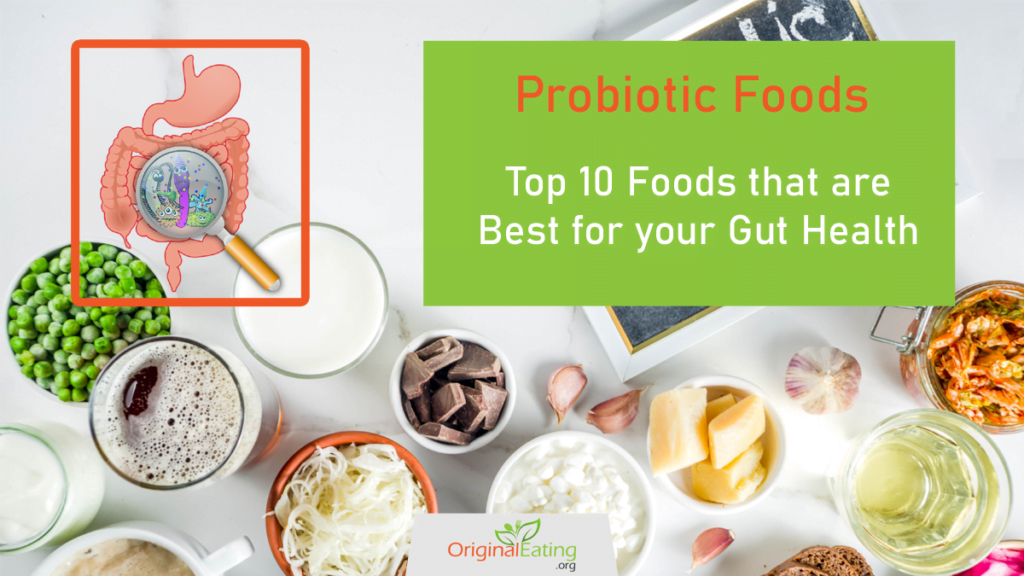
Types of microorganisms in our Gut Microbiome
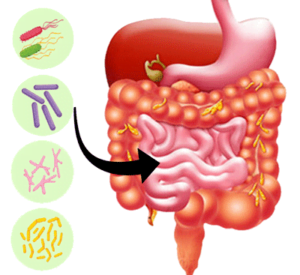
A research report and several medical studies reveal that there are almost 100 trillion microbial cells present in the human gut. And all such cells heavily influence our physiological health, immune health, central nervous system health, metabolism, muscle and bone health, and many other bodily functions.
When we talk about types of microorganisms, we can classify them into several categories, namely: Bacteria, Fungi, Protozoa, Algae, Viruses, etc. A healthy human body consists of several types of bacteria. Our gut consists of microbial phyla, like – Firmicutes, Bacteroidetes, Actinobacteria, Proteobacteria, Fusobacteria, and Verrucomicrobia. Each phyla again consists of several hundred different types of genera like Lactobacillus, Bacillus, Bacteroids, Bifidobacterium, etc. These gut microbial compositions differ from individual to individual, as these gut microbiota function differently and vary as per age, medication, antibiotic use, health, environmental factors, diet, etc.
Role of microbes
The human body has trillions of bacteria living inside us. Gut bacteria play one of the most vital roles in human health. Our gut microbiome plays a critical role in digestion, proper regulation of the digestive tract, metabolism, and even mood and behavior. Hence, they are directly responsible for the regulation of our mood, immunity, metabolism, and even behavior. Understanding the relationship between gut microbes and human health has become important because of the growing interest in probiotics and prebiotics. Microbiome research is a rapidly developing field, and new discoveries continue to emerge every day.
Because the gut and its bacteria help to supply essential nutrients, synthesize vitamin K, aid in the digestion of cellulose, promote angiogenesis, and improve enteric nerve function.
The lifespan of microbes and why we need to keep them healthy
Another important reason to ensure a healthy bacterial count is that our gut flora is tied to our mental and cognitive health. So, a healthy gut promotes healthy neuro health. The ‘gut-brain axis’ can be described as the link between the gastrointestinal tract of our body and the central nervous system. As per research, it is proven that gastrointestinal health or gut microbiota health vastly affects our cognitive functioning and even our moods.
In fact, according to science, gut flora impacts our mood, concentration abilities, memory power, and learning. According to clinical tests, proper treatment with prebiotics and probiotics given to participants resulted in improved cognitive function and a significant reduction of the overproduction of stress hormones in the brain.
Medical studies have also revealed that there are strong links between autism and the state of gut flora. In fact, gastrointestinal disorders and gut dysbiosis (bacterial overgrowth or disbalance in the gut microbiota) have been recognized as a few of the most common symptoms and reasons behind several autism spectrum disorders.
What destroys probiotic health?
When we achieve something good, we tend to hold on to it and desire to keep excelling or at least hold that position. That’s why when our body reaches peak potential with care and proper nutritionally rich diets, we follow certain rules and lifestyle checks to maintain the health benefits. A few of those necessities include proper diet, regular exercise, routinely sleeping for more than 8 hours, hydration, proper hygiene, etc.
And now, listed below are all the things you should stay away from to get a healthy gut and body, as they tend to destroy your probiotic health:
Unhealthy Habits
Alcohol, cigarettes, chain smoking, drugs, steroids, etc. have become a huge part of many lifestyles. Try to cut consumption of such or better yet try to stop for the better, in order to take your physiological and mental health to better and new levels.
Non-nutritional foods

Foods that lack proper nutrition but are carb-rich or fat-loaded give your body nothing but more calories. They are unhealthy and act as fuel for obesity, weakness, mental health deterioration, skin and hair problems, weak bones, muscle loss, gut health disorders, gastrointestinal problems, and digestion problems. Here is a list of foods that dangerously interfere with your probiotic health:
- Processed foods
- Carbonated drinks
- GMO products
- Refined sugar
- Gluten-rich foods
- Dairy
- Red meat
- Refined oils
- Fatty foods and junk foods that are hard to digest
- Caffeine
- Alcohol
Stress

Stress never yields any favorable results. What stress does instead give you bouts of insomnia, mental pressure, anxiety, depression, ill habits, brain fog, and even life-threatening diseases. When these issues start arising, medication becomes quite useless as the body lacks the preparation or energy to utilize the medications to fight off any illness. So, try to rest, understand the mental and physical demands of your body, do a relaxing yoga routine every day, and try to get more than 8 hours of undisturbed sleep.
Use of Antibiotics
Antibiotics are drugs that kill bacteria (both good and bad ones) or inhibit their growth. Although they are used to treat human health by killing off unwanted bacterial overgrowth, however too much usage can dangerously harm gut bacteria. Too many antibiotics do not provide many health benefits to our gut and may even cause harm and inflammation. They also reduce the effects of probiotics and make them useless when it comes to improving your immune system and its natural healing properties.
The concept of Probiotic Balance and its necessities
Probiotic balance refers to a healthy balance of gut microbes present in the gut microbiota. It means a lack of overgrowth of pathogens, viruses, and harmful bacteria living and infesting the intestinal walls. Instead, the gut microbiome is flourished with good gut bacteria that help support our digestive health, the health of the intestinal walls, organs, immune health, mood, mental health, etc.
What are Probiotic Foods?

Probiotic-rich foods contain beneficial live bacteria in them that help rebalances the good bacteria. Some of the best probiotic foods discussed below are beneficial to healthy bacteria, improve digestion, boost immunity, and regulate blood sugar levels. Some studies suggest that consuming fermented foods rich in prebiotics and probiotics, on a regular basis may reduce the risks of certain diseases, such as cancer, cardiovascular diseases, cognitive decline, and diabetes.
There are many probiotic foods on the market today. But that does not mean that all fermented foods are probiotics nor do they all contain live and active cultures, however, some of the most common include kimchi, sauerkraut, yogurt, tempeh, kefir, and kombucha.
There are also several foods that are high in probiotics but do not contain live bacteria, such as miso paste and dark chocolate.
Forms in which Probiotics are found
Probiotics come in several forms. Here are the four most common types you can find in the market globally.
Diet
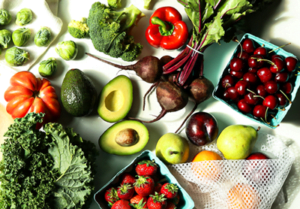
It is the simplest, cheapest, and the most delicious way to complete your daily diet. Probiotics are most commonly found in fermented foods that are listed further below in details. Consuming probiotic rich foods and fermented drinks on a regular basis have wonderful effects on your health conditions and promote better gut health. This is because they contain live and active cultures of many probiotic bacteria, mainly lactic acid bacteria and more. With numerous recipes and food options, you are bound to love everything about them and never get bored of your meals.
Supplements
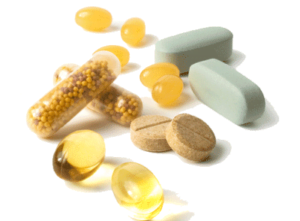
One of the massively followed and most in demand types of probiotics come in the form of capsules or dietary supplements. This supplement form of probiotics can be consumed anytime throughout the day or as per their recommended dosage and usage instructions. They function faster than other forms of probiotics and have more benefits in them alongside nutrition.
If you are wondering if there are any risks associated with taking a dietary supplement that contains probiotics? Well, you must know that, not all probiotic supplements have the same benefits and may have side effects to them. People who take large quantities of certain probiotics can experience side effects that include bloating and gas. So, to get your hands of the Best Probiotic and Prebiotic Supplement, visit here to learn about the Top 10 Probiotic and Prebiotic Supplement Brands!
Drinks
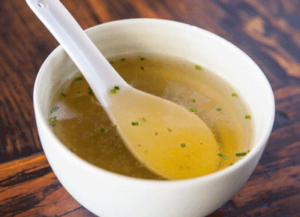
There are so many products that come in probiotic drink form. Here are a few of them.
Here are some probiotic drink recipes that you should try.
- Kefir – Coconut Water Kefir, Simple Milk Kefir, etc.
- Kombucha
- Probiotic Yogurt
- Lacto-fermented Probiotic Lemonade
- Apple Cider Vinegar Drink
- Probiotic Green Juice
Powders
Shake powders with probiotics have also become popular and many brands have followed this trend of adding probiotics to their powder shake formula. They are easy to prepare and you can take them with you in a bottle anywhere you go. They are easy and convenient, and some are delicious too!
Top Ten Best Probiotic Foods and their Probiotic Benefits
The easiest and most delicious way to add probiotics to your gut is through a balanced meal plan. Here are the top fermented foods that can do wonders for the beneficial bacteria in your gut:
- Kefir – This is a fermented milk drink that is often used as a traditional dairy product in countries like Armenia, Russia, and Bulgaria. It contains protein, vitamins, and minerals and has a sour flavor. The bacteria found in kefir grains can help your digestive system function properly and support your immune system. You can add kefir to smoothies or use it as a dressing for salads.
- Kombucha – This fermented drink is one of the best probiotic foods. This delicious fermented tea is made with black or green tea, sugar, and probiotic bacteria. It is popular in Asia but is starting to become more popular in the United States and across the globe. It contains powerful antioxidants and promotes healthy digestion. You can also add kombucha to smoothies and salad dressings.
- Probiotic Yogurt – If you think eating fermented foods like yogurt or any other dairy products are good sources of probiotics, then you should know that it may sound like a digestive disaster to those who are lactose intolerant. However, eating yogurt that is rich in probiotics is not that harmful at all. The fermentation process consists of fermenting the milk with bacteria and yeast. It usually contains milk solids, lactic acid, and sugar. It can be used in smoothies or eaten on its own. These delicious yogurts also contain probiotics that are extremely good for your gut.
- Kimchi – This popular and extremely flavorsome side dish is made by fermenting vegetables with salt, garlic, ginger, and other spices. Kimchi is a century-old traditional Korean dish, made mainly with fermented cabbage, and has become popular globally over the years. There is a presence of the newly discovered species of lactic acid bacteria, Lactobacillus kimchii, which may heavily benefit the gut microbiome. There are many other health benefits to kimchi as it contains several vital vitamins and minerals.
- Natto – Natto is a traditional Japanese dish that is made of whole soybeans that have been fermented with Bacillus subtilis. It has a sticky slimy texture, strong flavor, and a slightly sweet taste. It is mainly treated as a side dish to go with rice. Natto is also a great source of protein, vitamin K2, fiber, and Vitamin C. It contributes to healthy bones, cardiovascular health, and a strong immune system.
- Miso – Miso is considered to be both prebiotic and probiotic in nature and has the best qualities of both. Miso is also considered to be the best remedy for inflammatory bowel diseases due to the strong presence of Probiotic A. oryzae. Miso is also amazing at reducing risks of heart diseases, cancer (most commonly breast cancer as per research), and digestive disorders. One bowl of miso soup, cooked at a temperature that is not too hot, has been held as a highly effective remedy for several health issues as such.
- Tempeh – Tempeh, a fermented soybean product, has an Indonesian origin and is one of the most useful and highly effective probiotics that can directly influence and positively affect your cognitive function. Tempeh is also an amazing food to consume daily in order to heal leaky gut, digestive disorders, joint inflammation, etc. Since Tempeh is a lot less processed than tofu, this dish of fermented soybeans is considered as a healthier plant-based alternative. Eating it on a daily basis may also prove to be highly beneficial to your skin and mental health.
- Buttermilk – Traditional buttermilk, and not the processed branded ones, are made by straining the liquid made when churning butter and is an amazing source of probiotics. Buttermilk is a fermented dairy and very similar to a yogurt-based drink that contains live lactic acid bacteria. It supports your gut microbiome and the good bacteria, eliminates several types of stomach ailments, helps balance blood pressure, and is a great source of calcium for healthy bones (it does not contain any added calories or fats).
- Sauerkraut – Sauerkraut is a highly beneficial food that is made with fermented cabbage. It originated in China over a thousand years ago and has been globally recognized as a popular side dish or condiment. It is highly nutritious, improves digestion, boosts the immune system, may help lose belly fat, promotes heart health, strengthens bones, reduces stress, and improves cognitive abilities of the brain.
When shopping for fresh sauerkraut, try to avoid the pasteurized, and preservative-added ones. Or you can try to make your healthy homemade ones by following just a few easy steps! - Certain Cottage Cheeses – Here are some certain types of probiotic aged cheeses that contain Lactobacillus and Bifidobacterium.
- Feta,
- Swiss,
- Gouda,
- Caciocavallo,
- Edam,
- Gruyere,
- Cottage Cheese,
- Provolone,
- Parmesan, and
- Raw Unpasteurized Cheddar.
Cheeses that are made from unpasteurized, raw milk, are nutritious and contain protein, calcium, vitamin B12, minerals like phosphorus and selenium, etc.
Too much of anything is unhealthy. So do not consume more probiotic food than what is necessary or advised by your nutritionist or dietician. Plan your meals according to your body’s needs and requirements. And most importantly, always check your food labels to ensure you have the correct product.
How to add probiotics to meals?
Probiotic intake can be maximized by adding probiotic food with healthy recipes, to your meals. These can be molded into several types of delicious diet food recipes. Some of the easiest recipes can be found on every search engine. You may schedule yourself to have one or two portions of any of the above-mentioned dishes a day.
If you are always on a run and have little time to prepare yourself a healthy bowl of daily meals, we would highly recommend probiotic supplements or ready-to-go probiotic drinks. You should take your recommended probiotic supplement dosage every day to compensate for a lack of such in regular meals. On the go, probiotic drinks include a wide variety of yogurts rich in probiotics, kombucha, probiotic shakes, etc. Try to have a controlled amount of such to go with your diets as some may contain artificial sugar in them. So, it’s advised to consume them on a measured basis.
What happens if we stop using Probiotic Foods or don’t use them at all?
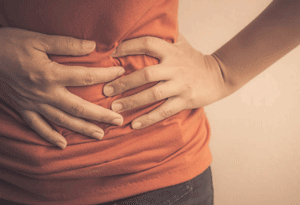
It is dangerously risky for the body when it’s not provided with sufficient fodder for the probiotics and prebiotics, or worse, dysbiosis where the gut significantly lacks the beneficial bacteria. When we do not consume probiotic foods at all, our gut may suffer from issues that can range anywhere from a mere gastrointestinal disorder to cancer and more. That risk gives way to issues that include: SIBO (Small Intestinal Bacterial Overgrowth), IBS (irritable bowel syndrome), IBD (Inflammatory Bowel Disease), Leaky Gut Syndrome, Crohn’s, Celiac Disease, Neuro health disorders, chronic fatigue, arthritis, rheumatoid arthritis, muscle inflammation, body pain, gut problems, digestive problems, colon cancer, heart disorders, nervous system disorders, extreme stress, insomnia, the inability of the gut to dissolve or absorb nutrients, etc.
Conclusion: Let’s summarize and decide!
Our body is a complicated machine with needs and functions. Its vital core includes the gut microbiome and our entire health directly or indirectly depends on it. Probiotics are what we refer to as those gut bacteria or any such healthy microbes. Prebiotics are the fibers and nutritionally rich food for those bacteria, find out the list of Prebiotic-rich Foods. These are the sustaining life force behind a healthy digestive system. The benefits of consuming a high probiotic diet have been already discussed above.
However, as recap, the benefits include increased energy levels, weight loss, and improved digestive health. In addition, research has shown that a diet rich in probiotics may help to reduce the risk of obesity, diabetes, cardiovascular disease and some types of cancer. Any diet that excludes such prebiotic or probiotic foods from daily consumption should not be followed unless medically prescribed.
So, try to keep your diet balanced, relax, get 7-8 hours’ sleep, and exercise for at least 20 minutes per day to ensure well-balanced gut microbiota and physical and psychological peak performances!
Source:
1. https://www.ncbi.nlm.nih.gov/pmc/articles/PMC5433529/
2. https://www.ncbi.nlm.nih.gov/pmc/articles/PMC4425030/#
3. https://www.ncbi.nlm.nih.gov/pmc/articles/PMC3539293/
4. https://www.ncbi.nlm.nih.gov/pmc/articles/PMC6351938/#
5. https://www.ncbi.nlm.nih.gov/pmc/articles/PMC3667473/
6. https://pubmed.ncbi.nlm.nih.gov/11034488/

Tim Koping (Medical M.Sc Physiology, Founder of Original Eating, and a Professor at a Leading Health Institute in the US): I am a medical M.Sc physiology graduate and the founder of Original Eating, an online resource that provides information and advice about healthy eating. I have a strong interest in health and nutrition, and I am passionate about helping people to eat well and live healthily. I have over 15 years of experience working in the health and nutrition industry, and I am dedicated to providing accurate, reliable information that can help people to make healthy choices for themselves. My work with Original Eating has been featured in publications such as Men’s Health and more, and I am frequently consulted by journalists for expert commentary on dietary issues. However, in my spare time, I also enjoy reading, hiking, and playing the guitar.